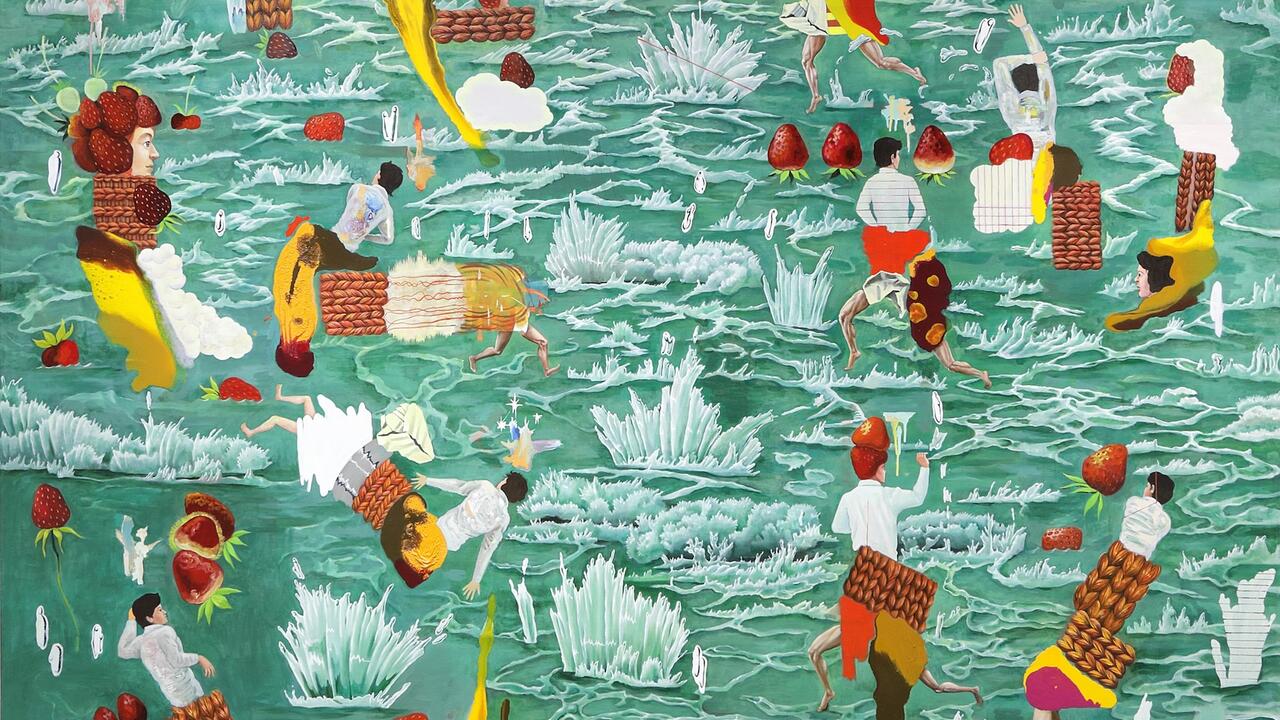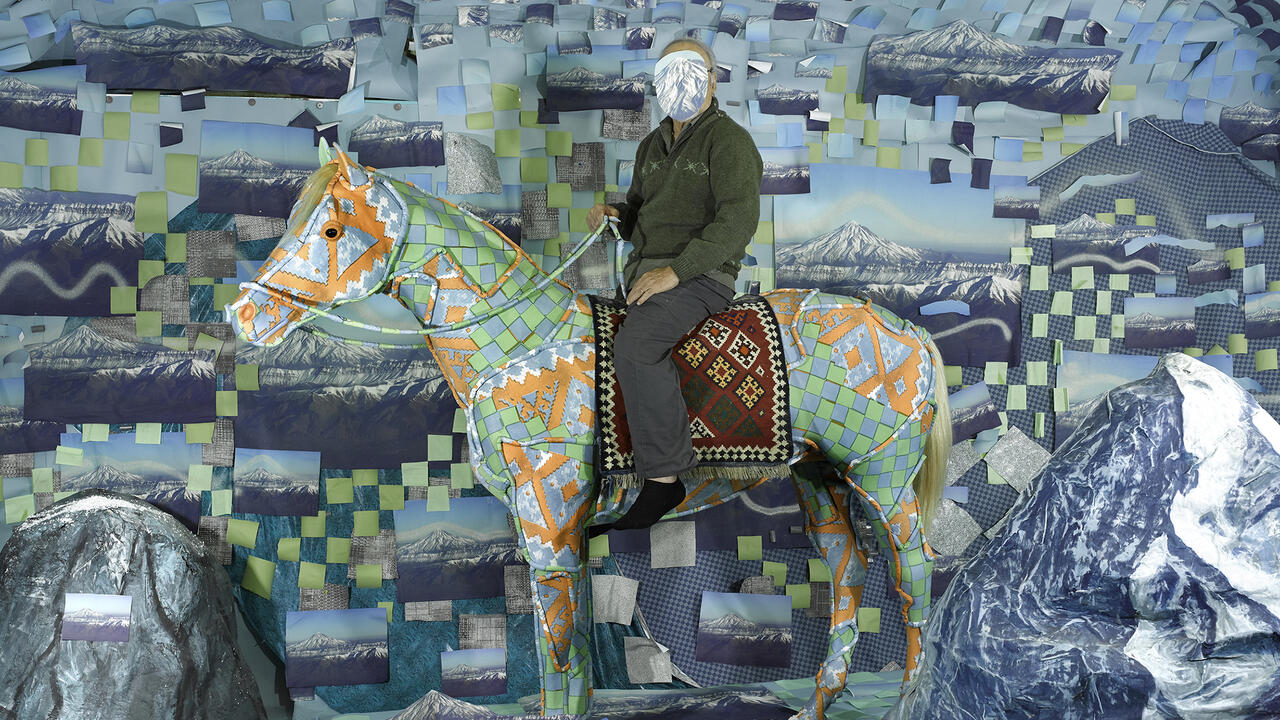Nothing if not critical
Theodor Adorno's centenary
Theodor Adorno's centenary

The celebration this year of the 100th anniversary of the birth of Theodor Adorno has prompted a renewed interest in the German writer's life and work. Despite the criticism his theoretical work has received in recent years, Adorno continues to be an important reference point for anyone seeking to provide an 'intellectual critique' of society. There is no denying that he epitomizes the Modernist cliché of the oversensitive bourgeois individual denouncing society's failures from the privileged position of an intellectual élite. Yet his theoretical approach, with its rigorous analysis of the intrinsic links between forms of cultural expression and social structures of power, has lost none of its appeal.
It was this desire to trace society's workings in all their complexity that led Adorno to reject the idea of the intellectual as a specialist in a specific discipline. (Indeed he himself has been labelled as a philosopher, sociologist, cultural critic and musicologist.) Instead, he maintained that it is the role of the intellectual to oppose the division of labour implicit in such specialization. Theory is conceived as a practice in which every aspect of society, culture and history is critically related to individual experience.
However, Adorno did not believe that the individual stands outside society, nor that intellectual reflection is inherently critical. On the contrary, modern subjectivity and thought are analysed in his work as the products of a cultural history contaminated by ideologies of power and oppression. In their seminal study Dialektik der Aufklärung (The Dialectic of Enlightenment, 1947) he and his colleague Max Horkheimer fuse Marxist and psychoanalytical theory to chart how the process of enlightenment has resulted not only in increased freedom but also in humanity's gradual self-enslavement. The control that mankind establishes over nature inevitably extends to his own mind and body. Underlying this process is the logic of instrumental reason: the drive to objectify nature to make it manageable and marketable. The scientific description of the world thus paves the way for its capitalist exploitation; rationality has become a means of commodification and hence an agent of oppression. In this sense the modern definition of subjectivity is merely a rationalist objectification of the self. The 'I' is the first commodity.
This process is universal, and resistance to it has to be at the level of society as a whole. But for Adorno art and theory are the battlefield where this act of resistance is most explicitly played out, with every artwork articulating in concrete form a negation of the gradual commodification of life, and with every piece of critical thought providing a specific instance of the refusal to accept the constraints of modern society. At the same time art and theory must try to gesture towards that which is beyond commodification - that which has been rejected, victimized or marginalized - without thereby allowing it to be subsumed by the system, to lose its otherness. In Adorno's own work this philosophy is probably best exemplified by Minima Moralia (1951), a collection of aphorisms in which densely concentrated observations on daily life in capitalist society are mixed with reflections on the ethics of perception. Because he believes the appearance of artless simplicity in the articulation of such a complex theory to be merely illusory, Adorno's writing is stylized to the point of becoming hermetic. The result is at times brilliant, at others pathetically narcissistic, but it is impossible not to be charmed by the transparent honesty in Adorno's quixotic effort to take nothing for granted, to take everything apart, question it and then reassemble it bit by bit.
Over the years much effort has been devoted to discussing the historical significance and contemporary relevance of Adorno's theories, but it is only now that his biography has attracted attention, with the publication of three major books and numerous journalistic takes on his life and career. The only child of a wealthy Frankfurt wine merchant, Adorno studied philosophy, music and psychology, but in 1933 was banned from teaching at Frankfurt University because of his Jewish ancestry and so emigrated to Oxford. In 1938 he was appointed to a position at Horkheimer's Institut für Sozialforschung (Institute for Social Research), which had been relocated to New York. In 1941 it moved to Los Angeles and Adorno followed. It was in California that some of his most important works were produced, including Dialektik der Aufklärung and Minima Moralia (both written between 1944 and 47) and Die Philosophie der neuen Musik (The Philosophy of the New Music, 1949). In 1949 Adorno returned to Frankfurt when the institute was re-established there. Upon discovering that the structure of the society they had fled from had barely changed, the associates of the institute, including Herbert Marcuse, Erich Fromm and later Jürgen Habermas, intensified their work on the body of critical theory that came to be known as the Frankfurt School. Adorno died of a heart attack in Visp on 6 August 1969, after a walk in the Swiss Alps.
As an icon, Adorno has also, somewhat predictably, become an object of derision. The weekly Der Spiegel, for instance, recently published a lurid exposé of his private life, portraying him as a competitive careerist whose narcissism led to his being shunned by friends and colleagues, a man who exploited his wife, Gretchen, as a secretary (she faithfully typed all his writings while he continually cheated on her), and who in 1969 condemned his university students when they launched their own protest movement. It's easy to portray Adorno as a bourgeois bigot. This criticism falls flat, however, once you acknowledge that he never concealed his belief that it was the decadent privilege of a dying bourgeoisie to be the critical reflection of bourgeois society.
It seems to be one of the ironies of history, however, that any theory will be undermined most effectively by its own supporters. Among contemporary German cultural critics, Adorno impersonators offer a caricature of their role-model, ridiculously dramatizing their lives as 'rebels on the run', always one step ahead of the 'system' that threatens to enslave them. Worse still, this lifelong obsession tends to turn critics into the mirror image of what they criticize. They become the secret police of pure reason, constantly scrutinizing comrades for signs of collaboration and ready to denounce them if need be. While this tendency is no doubt a shadowy presence in Adorno's own thinking, in his texts it is always paired with its dialectical twin: the belief that theory should manifest the possibility of freedom and fulfilment in the exercise of criticizing the conditions of oppression.
Easy polemics against Adorno-ites do not, of course, constitute a serious evaluation of Adorno's work. A convincing example of such an attempt to re-assess the relevance of his writings can be found in Adorno: Die Möglichkeit des Unmöglichen (Adorno: The Possibility of the Impossible, 2003), edited by Michael Hirsch and Vanessa Joan Müller and published by the Frankfurter Kunstverein to accompany an exhibition there later this year. Comprehensive exegesis of Adorno's theoretical writings by Hirsch and Alex Demirovic is accompanied by specific studies of, for instance, his writings on music (by Diedrich Diederichsen) and a comparison of related concepts as they appear in the work of Walter Benjamin (by Willem van Reijen). One crucial question that the book raises, posed by Hirsch and also by Christoph Menke, relates to the act of negation proposed by Adorno. Hirsch argues that it is only by revitalizing this radical gesture that contemporary criticism can regain its edge. But is a reversion to the Modernist model of the nonconformist intellectual really the only way to revitalize cultural criticism? The answer lies in a re-reading of Adorno's writings themselves, for which the essays in the book provide a lucid preparation. But renewing your acquaintance with Adorno can be like bumping into a glass door, as you realize that the fact that what is in front of you is transparent doesn't stop it from being impenetrable.
























